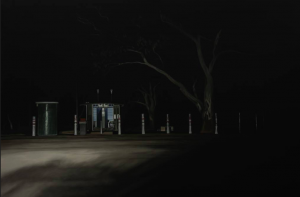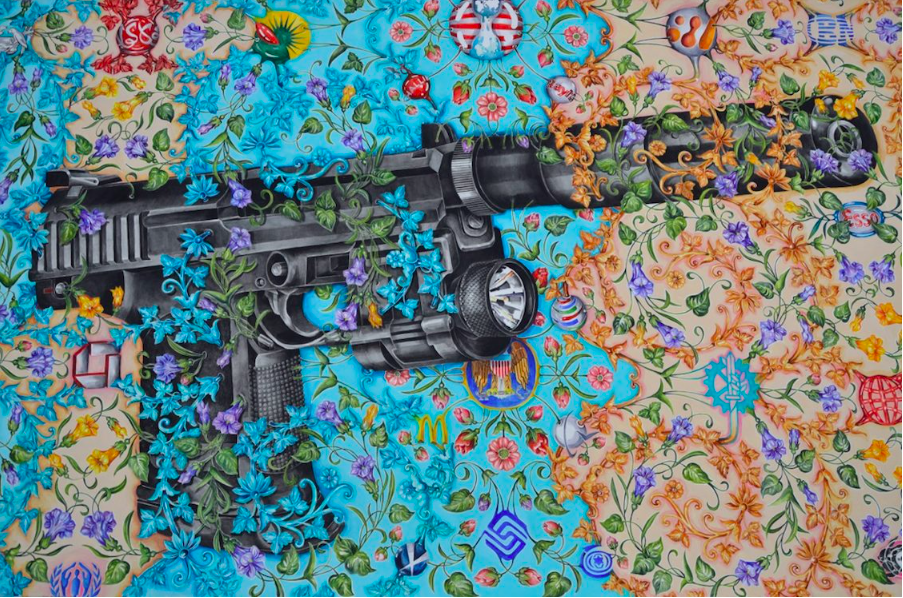Earlier this year French President, Emmanuel Macron, announced a €7 billion support fund, largely intended to help small companies and independent artists. It’s a far cry from the $250 million Scott Morrison is sprinkling on the arts sector in Australia. To think of the arts in France is to think of the Opéra Garnier and the Louvre. We get a measure of the Prime Minister’s cultural sophistication in his choice of venue for his big announcement: not the Opera House or the Art Gallery of NSW, but the Rooty Hill Colosseum.
I don’t care if this comparison makes me sound like a cultural snob. Anything is better than the wilful mediocrity of those who view ‘entertainment’ as the highest form of artistic aspiration. These are also the people who prefer “things you don’t have to think about”, because thinking is classed as work.
It’s important our politicians not keep playing to the lowest common denominator. What one sees in Mr. Morrison’s ‘bread and circuses’ approach to the arts, not to mention the NSW government’s abortive scheme to demolish the Powerhouse Museum and build an entertainment complex in Parramatta, is an abnegation of cultural responsibility. The arts sector is seen as merely a thin scrape of icing on the big fat cake we call the economy.
Woe betide the museums and galleries that depend on such visionaries to help them survive the COVID-19 outbreak. Even without a pandemic it’s not easy to achieve large attendances for art exhibitions, unless it’s the Archibald Prize – and even that venerable money-spinner would be wrecked by another lockdown.
With funds in short supply and the usual movement of artworks curtailed, instititutions are depending heavily on their permanent collections and small-scale projects. The Wollongong Art Gallery has suffered the added complication of having to close a show by Anthony Lister two months early, due to the artist’s arrest on sexual assault charges! As yet one can’t be arrested only for making terrible pictures.
Nevertheless, echoing Scott Morrison’s sage-like proscription during his arts package launch, the gallery has managed “to keep the show on the road” with three separate exhibitions by eX de Medici, Halinka Orszulok and Pamela Griffith.

The most eye-catching display is eX de Medici’s From the Room of Dorian Gray, featuring large watercolours that explode conventional expectations of the medium. A hundred years ago an Australian watercolour was a nice bit of bush scenery by J.J.Hilder or J.W.Tristram, but de Medici creates hyperdecorative pictures of deadly weapons, overt political statements, and, in Real Estate (2012-13), a panorama of the rocky Shir-Kuh mountain in Iran, complete with a calligraphic inscription from Persia’s national epic, the Shahnameh.
That inscription reads: “Count Persia as a ruin, as the lair of lions and leopards, look now and despair.” These are sentiments that might touch anybody who has been to this extraordinary country, so constantly villified in U.S. propaganda. Surely the Iranians have suffered enough at the hands of their own government without being treated as global pariahs.
Real Estate is a phenomenal feat of perseverance for an artist not known as a landscapist. The motivation remains oblique, but presumably de Medici wants to convey a sense of Iran’s antiquity and its stony resilience. Two pictures of guns, Cleavin’ Clint Eastwood (2014) and The Law (Heckler and Koch) (2013-14), are typically obsessive images that satirise the unending appeal of violence for those who consider themselves the guardians of civilisation.

De Medici’s guns are fetish objects in which aesthetic appeal is inseparable from their efficiency as killing machines. They are also metaphors for political power that offers visions of freedom backed up with dire threats. They are images that have grown in relevance in recent years as politics – particularly in America – has become more tolerant of extreme and dangerous positions. At the heart of the law there is always violence, but we’re digging a little deeper every day.
Halinka Orszulok’s paintings are nocturnal scenes, mostly taken from alongside the Hume Highway. I’ve driven past the sign for Black Bob’s Creek and the VC Mackey Rest Area on countless occasions, but never saw anything remarkable. Orszulok’s sensibility runs along very different lines. She transforms these roadside non-attractions into Gothic landscapes enveloped in thick, velvety darkness. In Black Bob’s Creek our eye is drawn to a flicker of light in the distance, most probably a car. In VC Mackey Rest Area we are conscious of the looming shape of a tree and a mysterious play of light in the foreground.

Orszulok creates a sense of expectation, instilling a niggling anxiety into scenes that would be banal by daylight. In her catalogue statement she ponders the history behind these places, discovering that Black Bob was not an indigenous man, but Robert Crawford, an irrascible surveyor who travelled through this region with Sir Thomas Mitchell.
Such ruminations add another dimension to these paintings. The pervasive blackness symbolises the void of the past, from which we retrieve only a few concrete fragments, allowing our imaginations to add the extras.
In the third show, Wollongong Then and Now, Pamela Griffith revisits parts of the region photographed by Charles Kerry in the late 19th century. During a period in which enthusiasm for the camera ran high, Kerry & Co. was the most entrepreneurial and successful firm of Australian photographers. The images of life and landscape made by Kerry and his employees form an invaluable record of the Federation era.

Griffith’s paintings are exhibited alongside archival photos of the same locations. It’s hardly a new idea to juxtapose views in this way but it’s an exercise that never loses its interest. Not only are we asked to weigh up the contrasts between past and present, but between the way a scene is depicted by the cameraman and the painter.
Griffith shows us a landscape full of people and traces of habitation. Crowds gather on the beaches, a long line of industrial buildings hug the shoreline. Compared to Kerry’s austere photographs of bygone times, Griffith’s pictures are conspicuously cheerful. One can feel the pleasure she takes in this sun-filled environment with its beaches, blue skies and giant-sized Gymea lilies.
For anyone who thinks of Wollongong as a dour, working-class city these works suggest that many of the places Kerry photographed have remained relatively unspoiled, with Stanwell Creek seeming even more lush and overgrown. It’s a selective vision, and Griffith has chosen to focus on the bright side, but it gives the reassuring impression that despite a century of mines and steelworks, Wollongong is a place in which nature has never accepted defeat.
eX de Medici: From the Room of Dorian Gray, 7 March – 23 August, 2020
Halinka Orszulok: Black Bob’s Creek, 7 March – 23 August, 2020
Pamela Griffiths: Wollongong Then and Now, 21 March – 25 October, 2020
Wollongong Art Gallery
Published in the Sydney Morning Herald, 25 July, 2020

